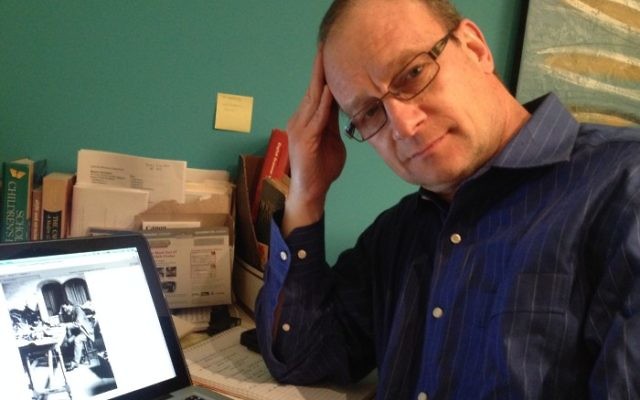Caution for Jews Stepping into Women’s March
Anti-Semitism is among the issues that threatens the cohesiveness of the women's march in Washington.
Dave Schechter is a veteran journalist whose career includes writing and producing reports from Israel and elsewhere in the Middle East.
The author of this column is male, Jewish, and of fair complexion.
In some minds that may render him unsuitable to write about the anti-Semitism controversy swirling around the women’s march.
Nonetheless, he persists.
The third annual march in Washington, D.C., is scheduled for Jan. 19. The first, called in alarm at the election of President Donald Trump, drew more than 500,000 women (and men) to the capitol on Jan. 21, 2017, exceeding most estimates for Trump’s inaugural the previous day. A few million more marched in cities and towns across the country.
News coverage focused on the busloads of marchers, the pink “pussy hats” (a knit rebuttal to one of Trump’s less decorous comments), and the blending of ages, ethnicities and races. Yet, lurking somewhat out of view were the organizers’ attitudes toward Jews and Israel, and the dangers of anti-Semitism.
(A deep dive into this subject can be found in “Is the Women’s March Melting Down?” published in December by the online Jewish magazine Tablet.)
The march’s founding “unity principles” omitted Jews as a group needing protection.
Amended in time for 2019, those principles now read: “We must create a society in which all women, including Black women, indigenous women, poor women, immigrant women, disabled women, Jewish women, Muslim women, Latino women, Asian and Pacific Islander women, lesbian, bi, queer and trans women, are free and able to care for and nurture themselves and their families, however they are formed, in safe and healthy environments free from structural impediments.”
One founder of the march, Linda Sarsour, a Palestinian-American activist and an outspoken advocate for the anti-Israel BDS (Boycott, Divestment, Sanctions) movement, acknowledged the issue in a statement issued in November.
“We should have been faster and clearer in helping people understand our values and our commitment to fighting anti-Semitism. We regret that, … We are deeply invested in building better and deeper relationships with the Jewish community,” Sarsour said.
Also at issue has been the reticence of organizers to disassociate themselves personally from Nation of Islam leader Louis Farrakhan, though the march organization itself has said that “we do not support or endorse statements made by Minister Louis Farrakhan about women, Jewish and LGBTQ communities.”
Another founder, Tamika Mallory, who has referred to Farrakhan on social media as a GOAT (Greatest Of All Time), told The New York Times in December that the march has come a long way since its founding meetings.
“Since that conversation, we’ve all learned a lot about how, while white Jews, as white people, uphold white supremacy, ALL Jews are targeted by it,” Mallory said.
Jews, it seems, are conveniently white (and separated from non-white Jews) when it suits the left, and not white when it suits the right, as with the neo-Nazi marchers in Charlottesville, Va.
The anti-Semitism and Farrakhan issues are fracturing the coalition that created the 2017 march in Washington, prompting defections and declarations of independence by state and city chapters.
A group calling itself March on Georgia – “We are not affiliated with Women’s March Inc.” – plans a Jan. 19 “March On to 2020!” rally on the Atlanta BeltLine, with recently sworn-in Democratic Congresswoman Lucy McBath from Georgia’s 6th District as the featured speaker.
The Georgia Alliance for Social Justice, an outgrowth from the 2017 march in Atlanta that drew 60,000 people, did not plan a march this year, preferring to support local events marking the birthday of the late Rev. Martin Luther King Jr.
“We are a separate, independent organization. Our position is that we stand against anti-Semitism in all of its forms. We will continue to work with our Jewish members and Jewish organizations we partner with to ensure that fighting anti-Semitism is, as always, a part of our intersectional social justice work,” said Janel Green, GAFSJ’s executive director.
“Intersectionality” is the theory, born in academia, that links the struggles for rights by one group with the struggles of other groups. On occasion, it has proven a tight fit for liberal Jews who support many of the movement’s positions but who also harbor affection for Israel – no matter how much they oppose its current government.
There is much to laud in the women’s march, most notably how it brought untold thousands of women and men into the public square and inspired greater civic engagement.
Still, there is ample reason for Jews to do their due diligence about the women’s march before putting a foot further forward.




comments